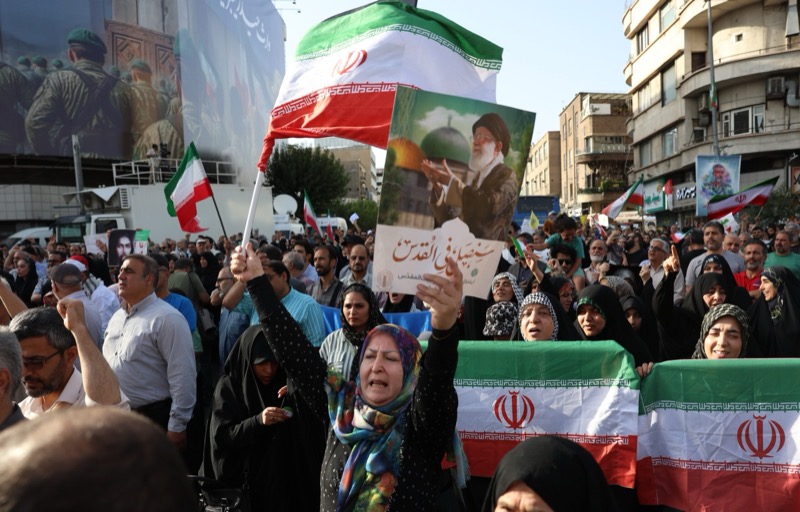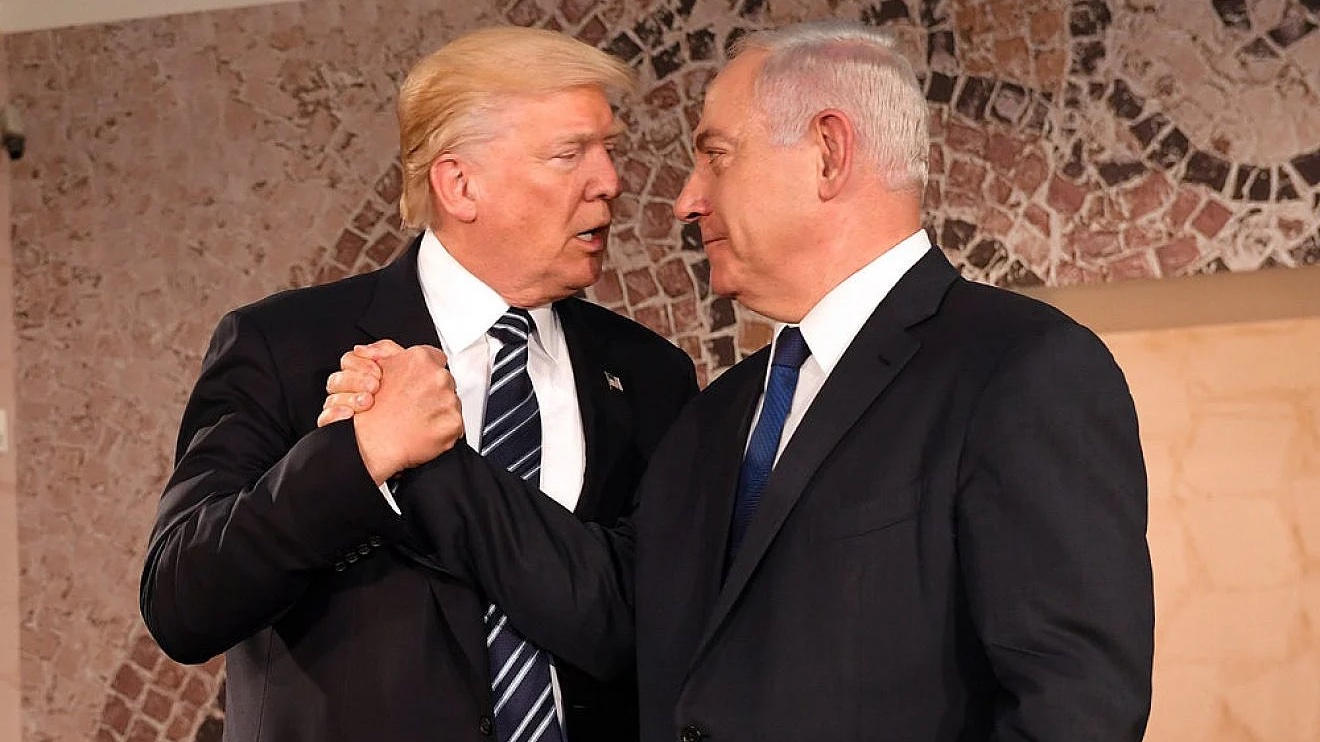(Israel Hayom) Nearly two months have passed since the end of the war between Iran and Israel. Negotiations for a new nuclear deal are still stagnating, after Iranian insistence led to a deadlock.
This week, France, Germany and Britain increased the pressure by threatening to reimpose international sanctions against Iran. On Wednesday, the French, German and British foreign ministers announced that they were ready to activate the “snapback” mechanism at the end of the month, but left Iran the option to postpone the deadline if it was willing to return to the negotiating table in earnest.
“We have made it clear that if Iran is not ready to reach a diplomatic solution before the end of August, or does not take the opportunity for an extension, we will be ready to activate the snapback mechanism,” they wrote in a letter to the UN secretary-general.
The sanctions mechanism
The “snapback” mechanism was built into the 2015 nuclear agreement, which allows any of the P5+1 (the UN Security Council’s five permanent members plus Germany) countries to reinstate the sanctions imposed by the council on Iran between 2006 and 2010 if Tehran was found to be in significant noncompliance with the deal.
The mechanism is triggered through the Security Council, but its permanent members cannot block it with a veto, leaving Iran exposed, without the diplomatic shield of China or Russia. Since the US withdrew from the agreement, only France, Germany or Britain can trigger it. But the timeline is short: The option to do so expires on Oct. 18, 10 years after the agreement’s “Adoption Day.”
The sanctions include a full arms embargo, a total ban on uranium enrichment, a ban on ballistic missile tests capable of carrying nuclear warheads, and a ban on transferring technology and technical assistance in the missile field.
In addition, it would impose asset freezes and international travel bans on Iranian officials and entities, and countries would be allowed to search Iranian cargo planes and vessels of the national shipping company to find prohibited goods.
“An existential threat” is how a senior Iranian official described the possibility of the powers activating the snapback mechanism.
“The Islamic Republic has neither the economic nor military capability to withstand the return of U.N. sanctions. This will cause the people to protest again, and this time it could be different,” he told the UK newspaper The Telegraph.
“Sanctions are more damaging than war,” another senior Iranian official added. “The Supreme National Security Council has asked the presidency to find a way to talks before it’s too late.”
Indeed, the Islamic Republic is facing a series of complex crises; the most prominent these days is likely the water crisis.
On Wednesday, Iranian President Masoud Pezeshkian addressed in a Cabinet meeting a jab from Prime Minister Benjamin Netanyahu about the possibility that Israel might help the Iranian people after the regime falls.
Netanyahu addressed the Iranian people in a video message in Persian, promising that Israel would help solve the country’s severe water shortage once Iran was “free” from the current regime.
Pezeshkian himself gave public expression to Iran’s helplessness on both these issues, water and nuclear talks. In a speech he gave earlier this week, the president admitted: “You want to fight? Well, you fought, but they hit us. If we rebuild the nuclear facilities, they will attack them again. What can we do if we don’t enter negotiations?”
On the water crisis, he said: “We have no water, we have no water under our feet, and we have no water behind our dams. So tell me, what will we do?”
Direct attack on the president: ‘Ignorance’
The editor of the conservative Iranian daily Kayhan, appointed by Supreme Leader Ali Khamenei, called the president’s remarks the result of “ignorance” and added that he hoped Pezeshkian’s words were only a “slip of the tongue.”
The Tasnim news agency, affiliated with the Islamic Revolutionary Guard Corps, also attacked the president: “When the enemy hears these things, what decision does it make and what image does it form of Iran? Clearly, only an image of Iranian weakness.”
There is no doubt that Iran’s nuclear program was severely damaged in the 12-day war; the Iranians themselves, the International Atomic Energy Agency, the US, and regional countries all admit this.
But two troubling factors remain: First, the regime’s motivation to advance the nuclear issue has only grown after its conventional deterrence proved to be a broken reed.
Second, Iran holds a stockpile of more than 400 kilograms (880 pounds) of uranium enriched to 60%, enough for several nuclear warheads after further enrichment, even if that occurs in less sophisticated facilities than the industrial program that was badly damaged.
Netanyahu confirmed this in an interview with i24NEWS, saying of the Iranian nuclear project: “It has been pushed back for years, that I can say.
“They have 400 kilograms of enriched uranium left. We knew in advance that the uranium would not be harmed, but that is not enough to produce nuclear bombs.
“We are prepared for the possibility of Iranian action, and above all for an attempt to rebuild their nuclear program,” he added.
A sequence of blows
Iran is in strategic distress that could also lead to renewed confrontation, according to Danny Citrinowicz, former head of the Iran Branch in IDF Military Intelligence and now a researcher at the Institute for National Security Studies at Tel Aviv University.
“Iran’s distress is a combination of many things: the war, the ongoing confrontation with Israel, and on the other hand also other issues like the water crisis and US involvement in the agreement between Armenia and Azerbaijan. It is a sequence of complex blows for which they have no real solution,” he said.
On the likelihood of another confrontation, Citrinowicz said, “There is a high probability they will attack if they assess that Israel is about to attack them, but not in order to ‘punish for the previous round.’ The understanding there is that they cannot repeat the events at the start of the previous war, that is simply too big a danger for the regime.”
As for the Iranians’ current moves, Citrinowicz believes they will work to restore their proxies, despite what appears to be a “death blow” in Lebanon and Iraq, and despite those proving ineffective in deterring Israel.
In terms of force building, Iran’s main goal will be to restore its air defense and missile capabilities, which were severely damaged in the war. Until that is done, Citrinowicz believes that they “will not make strategic decisions on the nuclear issue.”
Originally published by Israel Hayom.














